Hiking for Beginners: Top 5 Mistakes to Avoid on the Trail
“What’s the worst that can happen? You get lost”. I have seen this joke posted in random places throughout social media, usually amongst hiking and outdoor groups. But have you ever been face to face with this scenario? Has it ever transitioned from a joke to reality? For me, it has, and it happened on a botched hike on King’s Peak in Utah’s rugged and remote Uinta Wilderness. From that experience, I learned first hand what hiking mistakes to avoid in order to be a more responsible and equipped hiker, whether it is a one mile hike or a one week hike. If you are just starting out in the beginning hiking phase, these beginner hiking tips will cover everything you need to know in regards to hiking for beginners, and which 5 common mistakes NOT to make!
Disclosure: Below are some affiliate links-these are all products I highly recommend. I won’t make any recommendations on this page that I haven’t tested or personally used!
Hiking for Beginners 101: 5 Hiking Mistakes to Avoid
Sometimes, knowing what NOT to do can be just as beneficial as knowing what TO do when it comes to beginner hiking tips. So here you have it, the top 5 hiking mistakes to avoid as a beginning hiker, or a seasoned expert! These hiking tips will help you develop a mindset to take on any trail safely and responsibly!
Hiking Mistake #1: Do Not Make Assumptions
I grew up doing short, family friendly jaunts, but serious hiking and backpacking did not happen until much later in my adulthood (proving the point that it is never too late to adopt an active travel lifestyle). I have been working for years towards my personal goal of summiting all 50 of the state high points, and this has naturally led to an increase in the amount of time I already spent hiking.
A renewed sense of wonder in the natural world during my adulthood also led me to tend towards the outdoors versus the cities. I am an avid runner and cyclist, in addition to hiking, and have completed half marathons and marathons around the country and around the world. So I have experienced a fair share of outdoor experiences. No matter how experienced you may be, however, do not make the fatal mistake of making assumptions.
So you have hiked this trail 11 times already and never had any trouble? Do not assume that it won’t happen on the 12th time. Just because you hiked a trail in with no problems, does not mean you won’t encounter any on the way back out. Just because you summited a 13,000 foot peak, do not assume that a 12,000 footer will be “easier”. Just because there is someone hiking with you, that does not mean your duo is now invincible. There is a whole range of scenarios that can fall into this category. When beginning hiking, the bottom line is this: experience can make you more prepared, but it does not make you a psychic. Don’t be a cocky hiker!
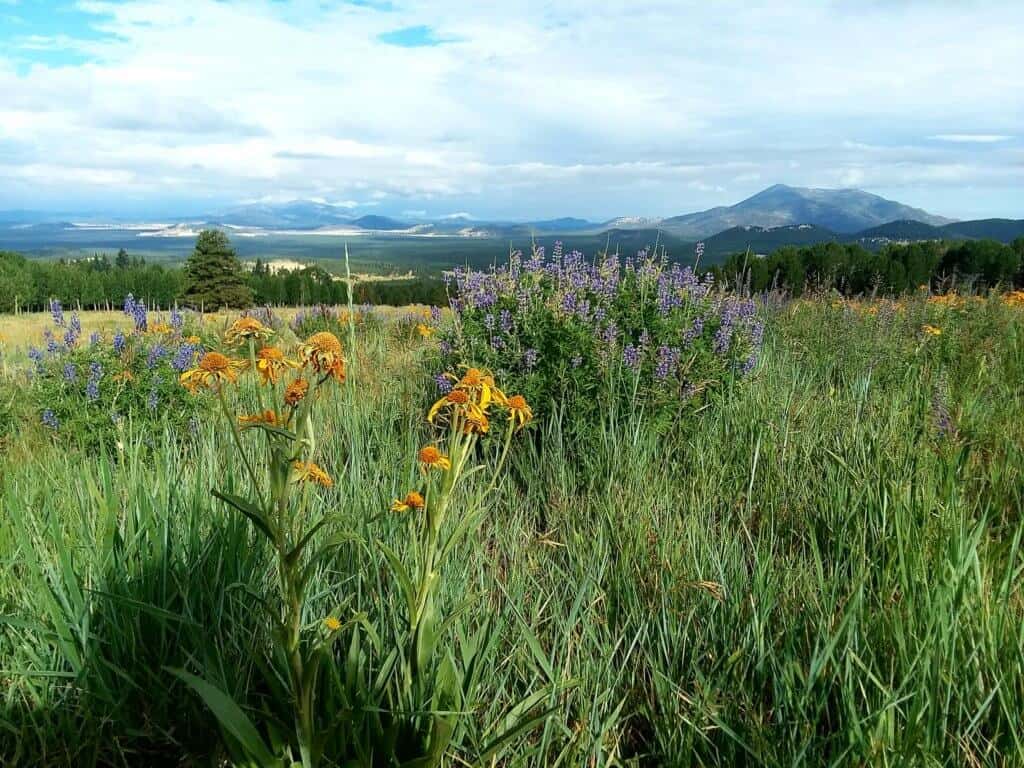
Hiking Mistake #2: Do Not Underestimate
I have learned that there is no such thing as an “easy” hike. When you mentally start labeling your hike as easy, you tend to start underestimating it, and thus letting your guard down. There are arguably “easier” hikes, but no hike should be treated lackadaisically.
In my case at King’s Peak, Utah, I was only supposed to be out hiking that day for 12 miles, and I packed as such. I underestimated the realm of factors that could happen that would easily change my original projection. I had no intention of being lost overnight, then I was. I had no intention of being lost for almost 24 hours, then I was. I had no intention of having to walk an additional 25 miles, and then I had to. I almost didn’t bring a jacket that morning, because, hey, it wasn’t supposed to rain. Turns out that jacket was a lifesaver when the temperatures plunged into the 40’s that night, and it was the only outer layer I had.
When it comes to hiking for beginners, do not underestimate what you might need to be fully prepared and equipped for any hike. Just because you are only supposed to be gone for 2 hours, or just because it is only supposed to be a 3 mile hike, do not underestimate what can occur when you are immersed in nature.
Bring enough layers for not just that moment, but all temperature and weather possibilities. Appropriate layers and a good fully waterproof and windproof outer shell like the ultralightweight Outdoor Research Helium II, are some of the best protective items. When beginning hiking, assume there might be some form of precipitation, and bring that waterproof protection.
Never use cotton for layers, opt instead for quick drying, breathable, and moisture wicking materials. My go to layering brand is IceBreaker, because they use Merino wool in all their products, and it is unmatchable in its performance on those aforementioned qualities.
Bring extra food, and make sure that food is high energy, easily digestible, and easy to pack. Some of my favorites are tuna packets, beef jerky, Honey Stinger waffles, RX bars, trail mix or mixed nuts, applesauce packets, squeezable peanut butter packets, and GU energy gel packets.
Bring extra water. Better yet, bring a filter, like this Lifestraw on Amazon, or this collapsible Katadyn BeFree with internal filter, so that you always have the potential to get more water. Utilize existing technology to have your map downloaded, and a means of being able to track yourself (see my post on my hiking gear essentials), even if you are just going on a quick jaunt on a familiar trail.
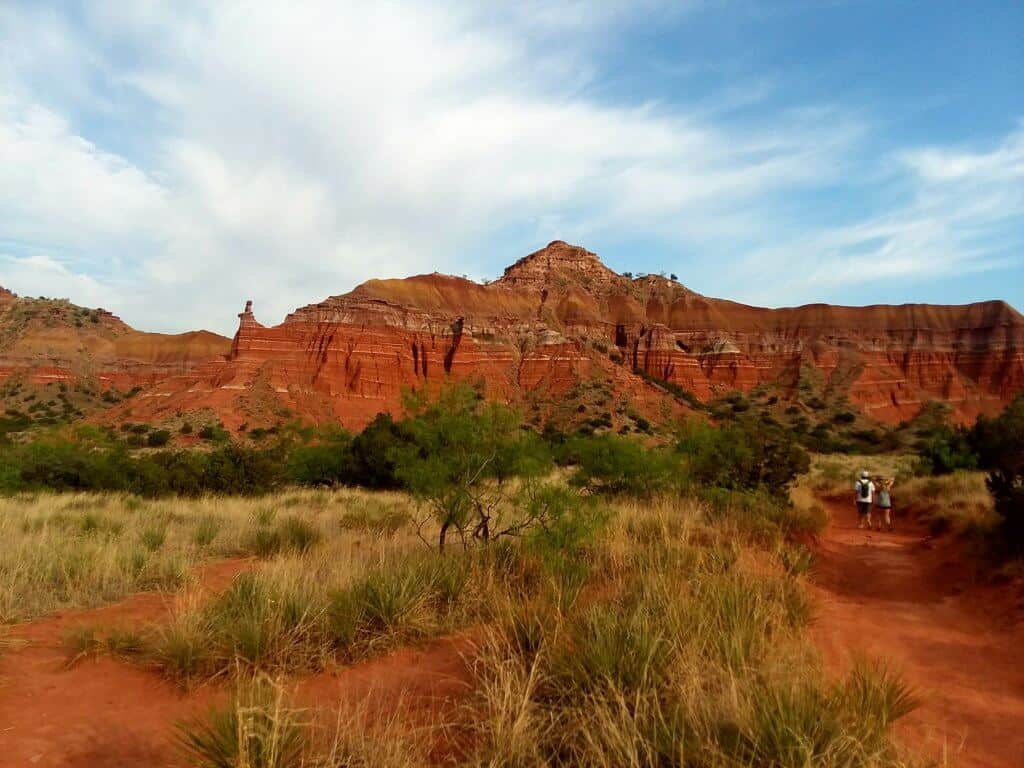
Hiking Mistake #3: Do Not Get Distracted
No matter how short or easy a hike is, be alert and pay attention at all times when beginning hiking. It is vital to keep a mental “map” as you hike. Keep track of the turns, the landmarks, the conditions. A good hiking for beginners mantra should be scan, scan, scan.
Hiking with others is great, but do not allow the accompanying conversations to prevent you from being aware of your surroundings at all times. I am the worst when it comes to getting distracted by taking pictures, or veering off to watch an adorable, scurrying, chubby-cheeked chipmunk, or simply daydreaming. But do not forget, you have a job to be doing, no matter what length the hike. Paths can be washed away quickly by afternoon showers. Wildlife can be lurking nearby. “Deer paths” can lead you off the main trail if you are not paying attention.
Landmarks can help you re-orient yourself if you ever get disoriented, but you have to notice them in the first place. And finally, always be paying attention for other hikers in need. A disabled individual may only have the volume of their voice to help them in an emergency, and they may very well be counting on you, that other hiker who may be the only person to pass them by.
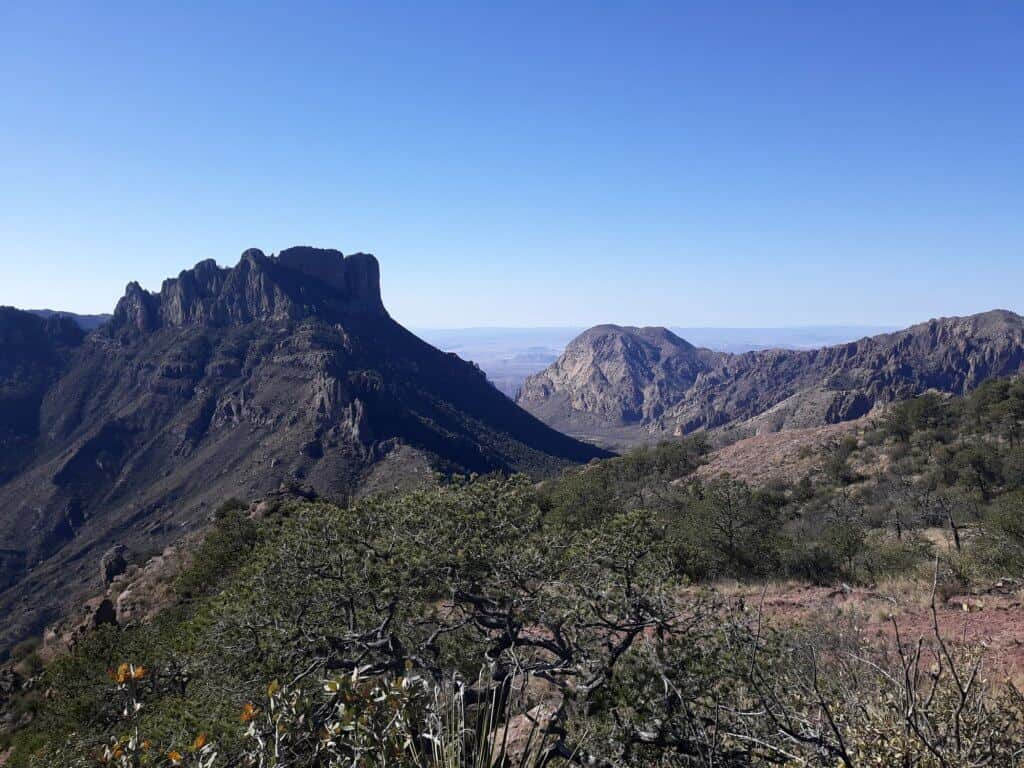
Hiking Mistake #4: Do Not Be Invincible
I am a seasoned hiker, long distance runner, and cyclist, and I train consistently for whatever “hikecation”, “runcation” or “cyclecation” I have coming up. I have run a multitude of half marathons and marathons in various states, countries, and National Parks over the years, and have developed a sense of confidence in my body’s abilities.
I was fresh off completing my hardest race to date, a runcation at the Great Wall Marathon in China, the spring before I began prepping for the King’s Peak backpacking hike and the other U.S. state high point summits I had planned for that respective summer road trip. If ever there was a confidence booster in physical stamina, it is running the 5,000 steps of the Great Wall. It did not, however, make me immune to the tricks of the trail at the highest point of Utah. A good hiking for beginners mindset, or any hiker’s mindset no matter what their experience level, should be to stay humble.
I had successfully summited 3 other tough state high points in the weeks immediately prior to King’s Peak: Guadalupe Peak in Texas, Wheeler Peak in New Mexico, and Humphrey’s Peak in Arizona. All high altitude hikes, all challenging all day ascents. Guadalupe Peak and Humphrey’s Peak I did solo. Humphrey’s Peak I completed only days before King’s Peak. So I had no reason to think I would encounter trouble in Utah. I never saw nature as potentially stronger than me. And that was a mistake.
The wildness of the outdoors deserves a certain respect. Even the most seasoned hikers can, and do, get lost. Unfortunately, it is in the news all the time. No matter how many hikes you have done in your life, know that you are not invincible, and no hike should ever be considered “a walk in the park”. When beginning hiking, always treat the trail with the respect that it deserves.
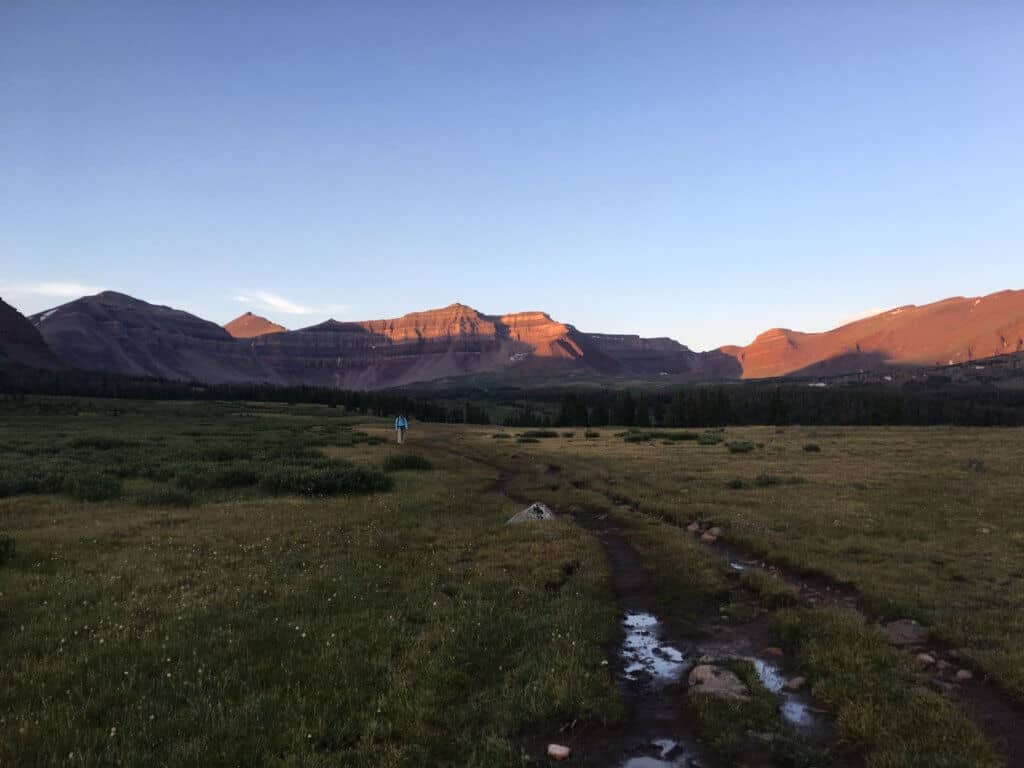
Invincibility can also come into play when choosing a hiking partner. It is important to be mindful and realistic about who you are going to be conquering your hike with. Ill-matched partners might lead to one partner feeling guilty and telling the other partner to go on ahead, or one partner’s expertise may push the other partner past their current abilities. Either way, it can end in trouble. Know your abilities, communicate your abilities to each other, and agree on a plan in order to be evenly yoked. And then use those experiences to gradually build up your abilities and skills together.
Should you ever get lost on a hike, acknowledge that you are not invincible. It is absolutely necessary to play it smart, not grandiose. The right mindset is key. A ruggedness, such as the Uintas that I experienced, can and does get the better of all forms of hikers. Stop, accept the reality of the situation, and formulate a plan.
Hiking Mistake #5: Do Not Be Under-prepared
Perhaps the most commonly seen hiking for beginners mishap is to be under-prepared. People have been traversing all corners of the untamed world since the beginning of time. But in today’s day and age, there is no reason to not take advantage of the hiking gear, equipment, and technology that can truly equip the responsible hiker. When beginning hiking, I highly recommend building a complete inventory of each of the 10 categories of hiking essentials, and I recommend spending the money to invest in high quality equipment and gear. I know it can be expensive, but I would not make this recommendation unless I follow it myself.
Download Your Own Complete Hiking Checklist Here!
If you ever find yourself lost in the woods at night and it begins to rain, you are going to be so thankful that you invested in that waterproof jacket, not just a lower end water-resistant jacket. If you ever find yourself having to walk 20 miles more than you were planning on in a day, you will be grateful for those high quality, sturdy hiking boots, like these Vasques that I use. If you ever find yourself lost in a wilderness that has claimed lives, you will be grateful for that expensive emergency communication device.
Things can and will happen when you are out in the wild, just like they do in every other realm of life. There’s a lot of things we can do to prepare, and a plethora of resources and best practices out there for us to follow. But sometimes it’s good to look at hiking from a different perspective, and remind ourselves of what NOT to do!
***Be EXTRA prepared in advance, with this collection of handy hiking resources like printables, trackers, gear checklists, and training calendars, all designed to prepare you to be the most ready hiker!
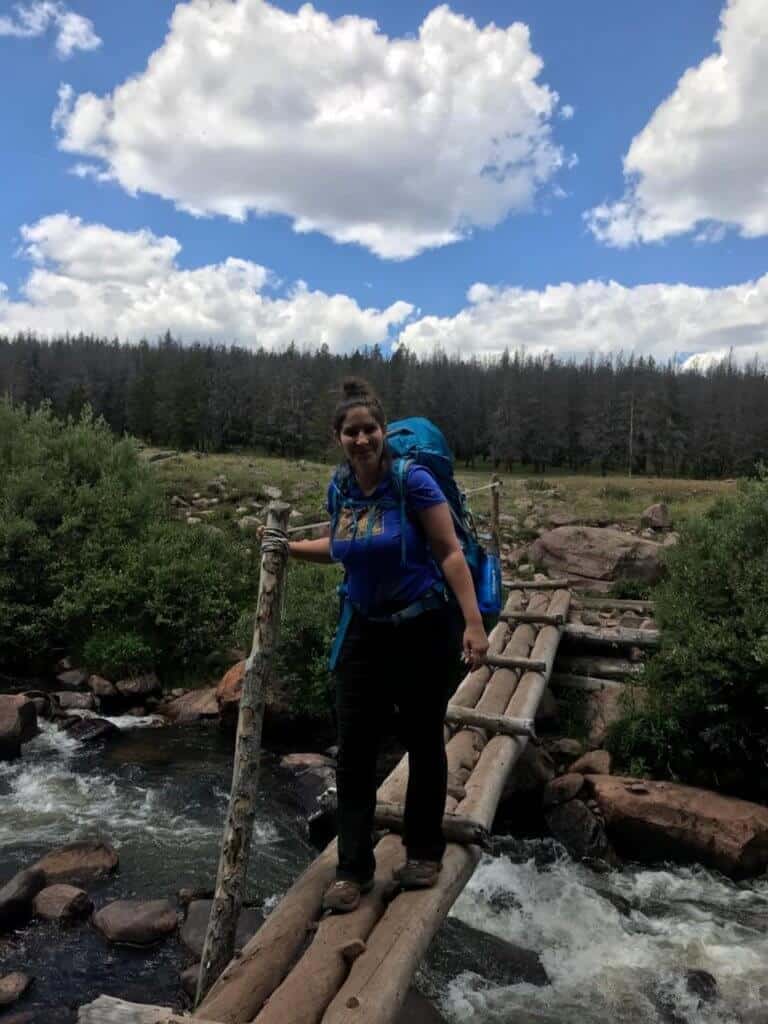
Happy Hiking!
***Read More: Whether you are hiking alone or with a group, these are 5 invaluable hiking tips to follow! However, if you have a solo hike planned, check out my additional tips for solo hiking safety!
***BONUS! Are you wondering how you can get better at hiking when you live at low elevation? Take your hiking game up a notch with these 6 simple, straightforward, and uncomplicated hiking training exercises you can do from literally anywhere! The perfect add on for any hiking for beginners 101!
PIN for LATER!

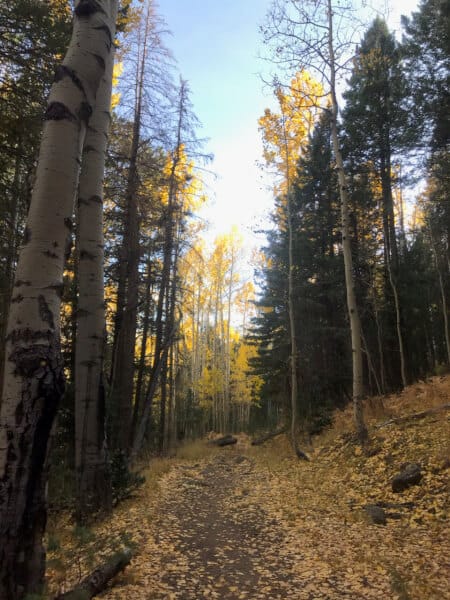
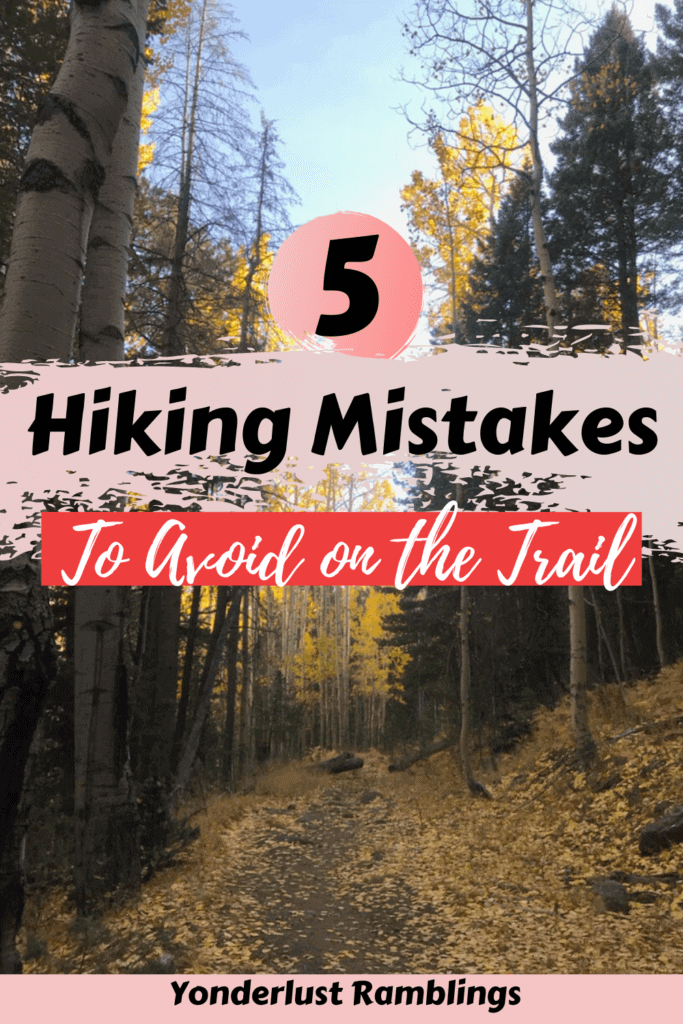
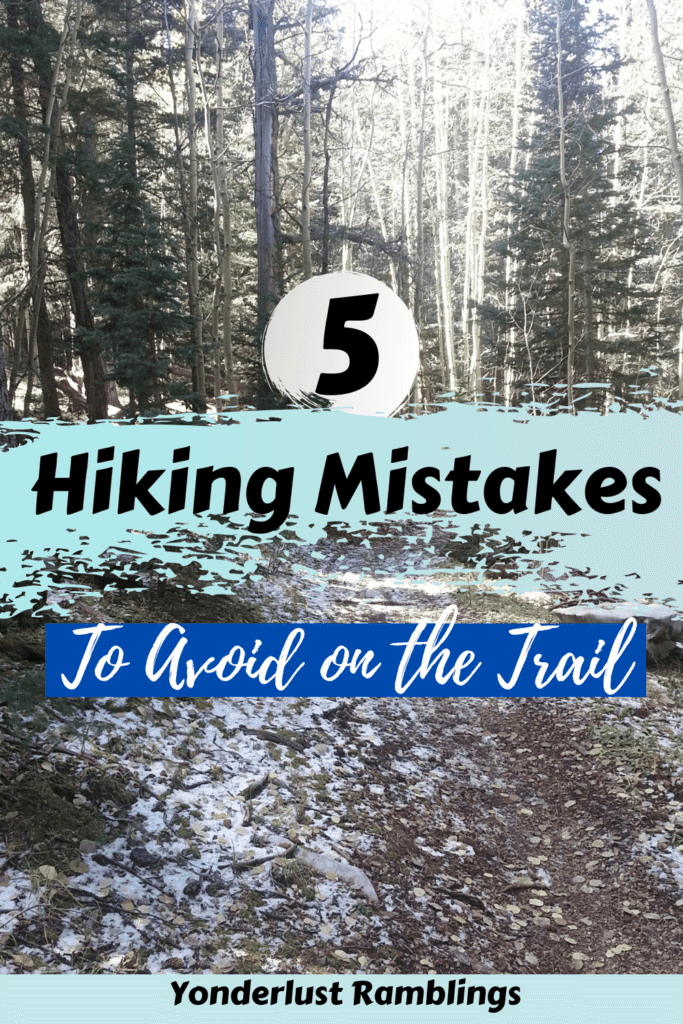
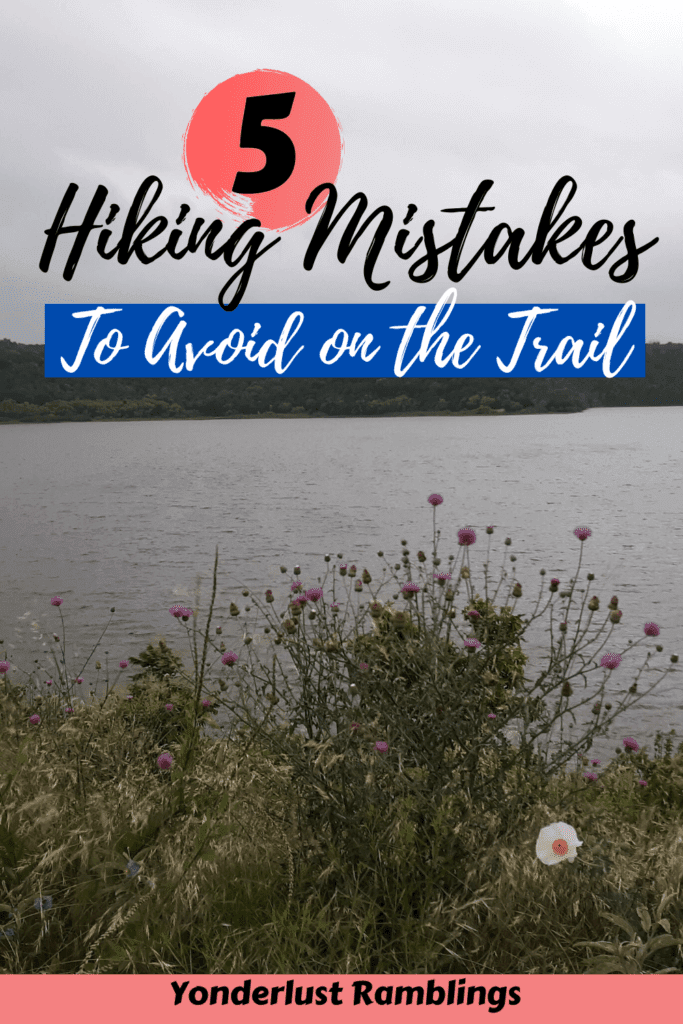

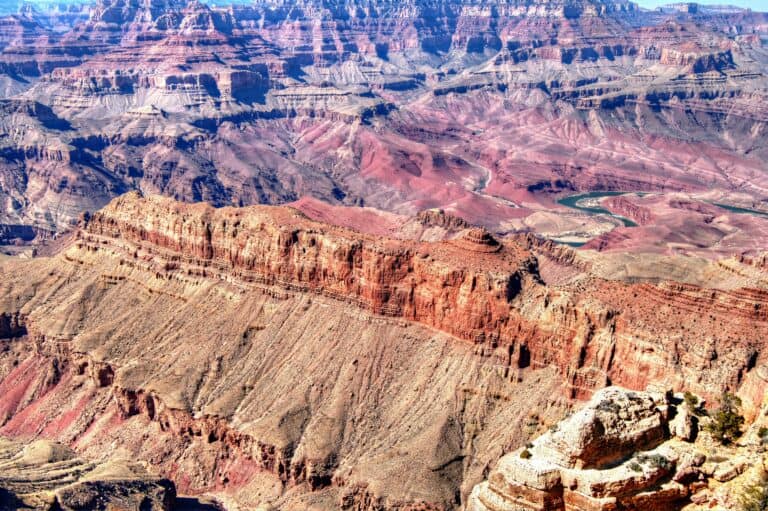
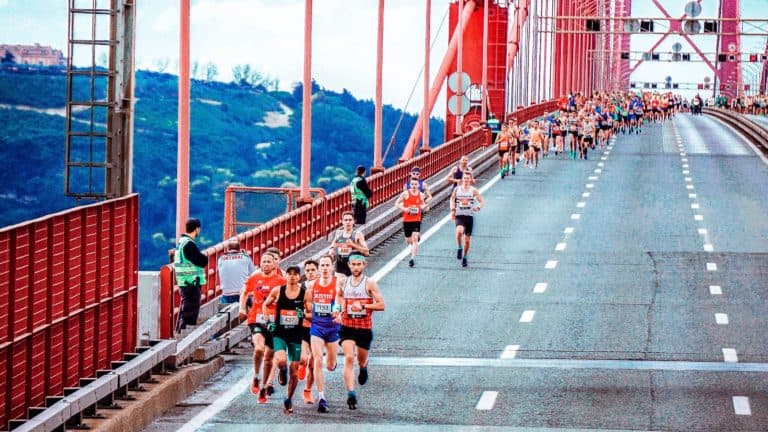
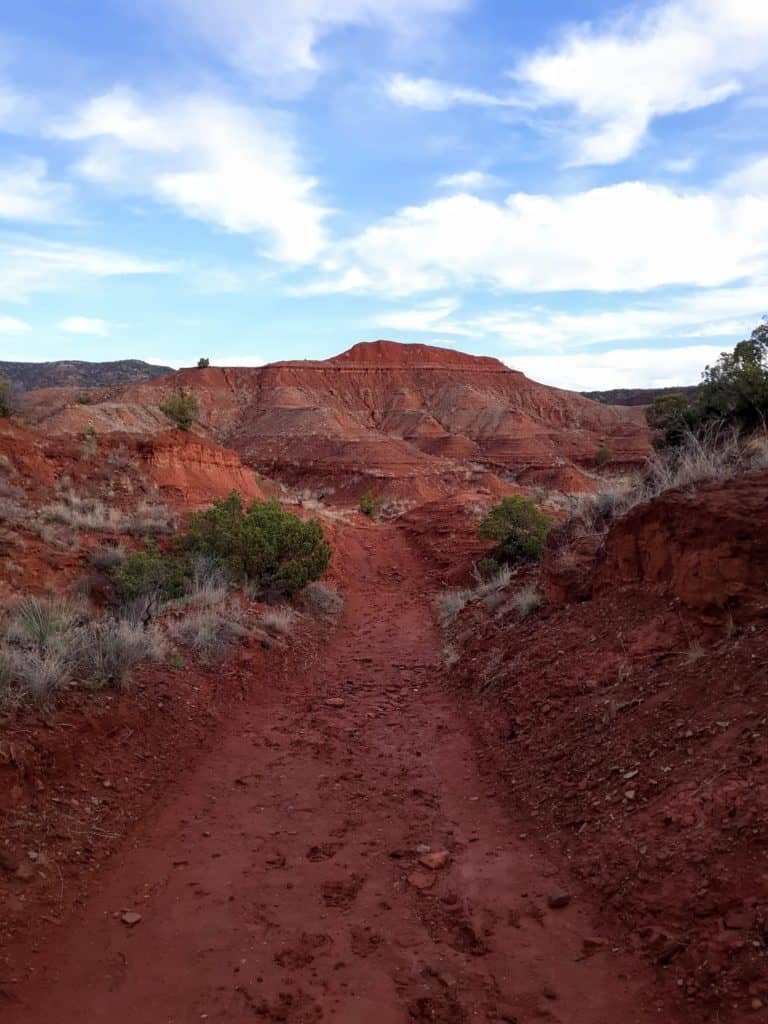
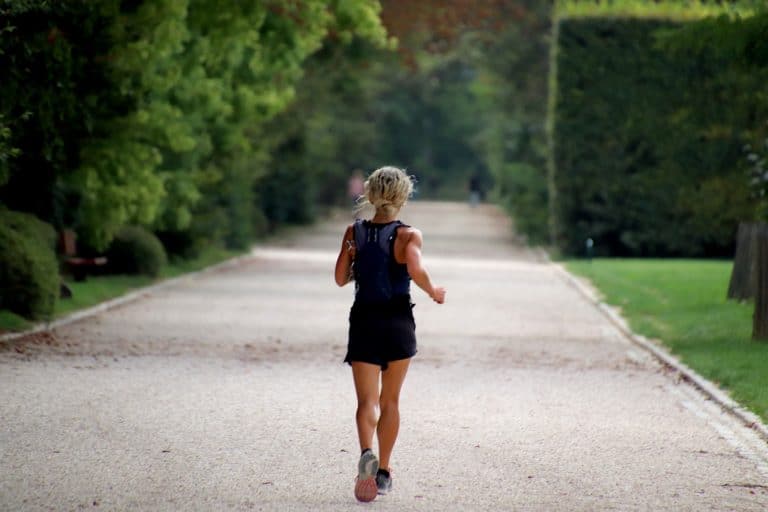
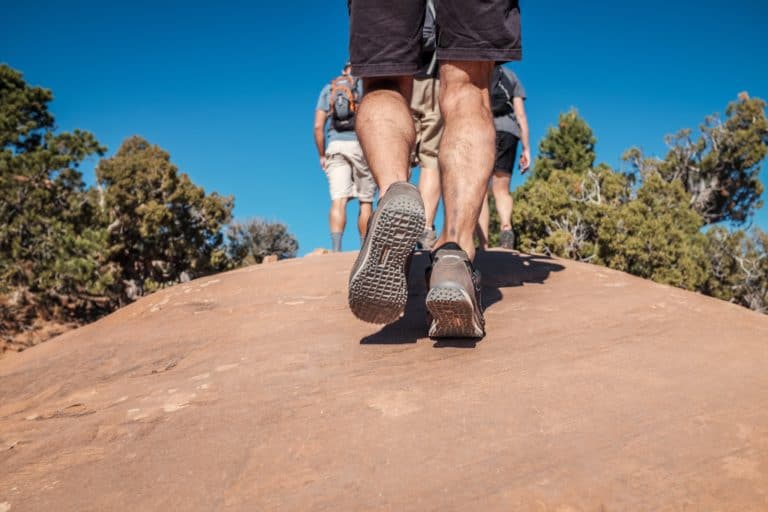
Well written and great insights
Thanks!!! Glad you liked the insights
We just came back from a camping/hiking trip in Colorado, and I absolutely agree! Thank you for sharing!!!
Marina, I went to Colorado this summer also and did some hikes near Fairplay. I think Colorado has a proportionately unfair amount of natural beauty, that’s why I loved visiting so much!
Hiking seems like a risky activity, thanks for the tips
Aaliyah, it absolutely is an activity with risks, but in my opinion the rewards far outweigh them. It’s just a matter of being fully prepared. Glad you found the tips helpful!
I too have learned “do not underestimate” and “do not be unprepared” the hard way. Nothing like assuming you’ll be back in time for lunch, bringing no food, and then getting lost and having to add 6 miles/two hours to what was already a 12-mile hike!
It’s a very humbling experience for sure! But I learned from it, and I think these experiences can offer the chance for a lot of growth and better preparation! Thanks for reading and sharing.
This is an excellent article. We often do 3 to 5 mile hikes, and we travel every so often for bigger hikes in the mountains or national parks. I’ve always had a fear of encountering a bear, but I haven’t really given much thought to getting lost just because I’m always with others and I’ve relied on them for directions. You’ve given some great tips and I definitely will be keeping them in mind from now on. Thanks!
Such good information for first time hikers! It can definitely get confusing on trails, especially the long ones! Thanks for sharing!